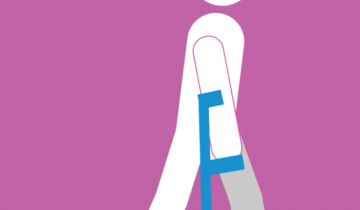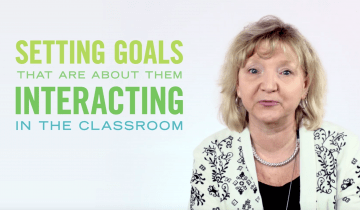In cerebral palsy (CP) muscles are often shortened so much that they restrict joint range of motion and the muscles themselves are weak. Thus, ‘shortness’ and ‘weakness’ are two important needs that clinicians must address.
Though the initial insult or injury to the brain that causes cerebral palsy is non-progressive, aging with cerebral palsy and lack of physical activity during critical periods of development can impact biologic and metabolic function for adults with cerebral palsy.
Many people do not know the difference between SSI and SSDI. It can be very confusing for a family or individual to understand what is available, and whether they will qualify. Very often, the recipients and their families do not even know which benefits they are receiving. But it is important to understand some basic information about government benefits. This post will focus on the two most common government benefits and give you a brief overview of how they work.

Setting up a Third Party-Special Needs trust as part of estate planning is essential if the individual with a disability is or may be eligible for means-tested government benefits. A properly set up Third Party Trust ensures that the funds left to the individual, whether through gift or inheritance, are not considered countable assets when applying for means tested benefits

In 2014 the Achieving a Better Life Experience Act was passed. The ABLE account is a tax-advantaged savings account for individuals with disabilities. The individual with the disability is the account owner and anyone can contribute to the account – the account beneficiary, family, friends, even a Special Needs Trust.

A special needs trust is a written legal agreement that enables an individual with a disability to qualify or remain qualified for means tested government benefits, such as medicaid, SSI or even medicaid waivers.

There are multiple factors that impact bone health, including birth weight, nutrition, medications for seizures and/or reflux, genetics, and physical activity. Targeted exercise to improve bone health in childhood can be sustained into adulthood, and childhood is the best time to promote bone health.

It's important for all of us who are imposed with certain physical boundary conditions to push those boundary conditions as far as possible and maintain as much independence as absolutely possible.

The future of science advancements is endless. In this video Dr. Ted Conway discusses the possibility of thought to speech. One of the really interesting areas of research in biomedical engineering is thought to speech. The concept of thought to speech is fairly straightforward, the execution to make this a reality is a little more complicated.

When you're looking at setting goals for kids with complex communication needs, don't forget about setting goals that are about them interacting in the classroom. It's not just about punching buttons. It's not just about saying vocabulary words. It's about talking with people and showing who you are. Some specific goals that you can look at are in four areas. Educational goals, social goals, inclusion goals, and goals and independence.

